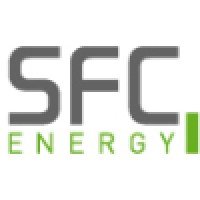SA’s hydrogen market potential on display in Japan

Local hydrogen technology and product enterprises welcomed the opportunity to participate in the Japan International Hydrogen and Fuel Cell Expo in Tokyo.
Launched in 2005, the expo is now the world’s largest show for hydrogen and fuel cells, with leading international exhibitors showcasing various technologies, components, materials and devices.
Green hydrogen has become key in world efforts to transition to a carbon-neutral environment by 2050.
Over 220 organisations – from Africa and North America to Asia and Europe – gathered at the Tokyo International Exhibition Centre to display the latest technologies for the production, transportation, storage and use of hydrogen.
The Department of Science and Innovation (DSI) led the South African delegation to the global gathering and its Hydrogen South Africa (HySA) initiative featured prominently.
Dr. Darija Susac said that the centre’s mandate involved components in the early part of the fuel cell and hydrogen value chain, namely catalysts and catalytic devices.
“We have commercialised our technology for fuel cell catalysts and membrane electrode assemblies via a spin-off company, HyPlat,” said Dr. Susac.
HySA Catalysis supports the DSI’s strategic objective to transform South Africa from a resource-based economy to a knowledge-based economy by adding significant value to the country’s mineral wealth.
“We also have a goal to develop human capital because South Africa needs to develop scientists and engineers. So far, we have graduated over 60 master’s and PhD students at the University of Cape Town,” she added.
Jafta Mosia said that the global hydrogen economy presented a myriad of opportunities for the development of the energy sector in South Africa. The company specialises in developing sustainable green energy solutions for residential, commercial and utility establishments.
“To unlock the potential in the country and the African continent, a deliberate, targeted approach is required from all stakeholders. This will enable the development of a complete hydrogen value chain based on value-creating technologies and innovation across various industries. By integrating our solar photovoltaic renewable energy solutions with hydrogen technologies, we hope to contribute to a decarbonised South Africa,” said Mosia.
The Council for Scientific and Industrial Research, another DSI entity, also exhibited a hydrogen-powered unmanned aerial vehicle (UAV) that it is working on. Development started last year and should be completed by 2026. The CSIR UAV project aims to develop, demonstrate and prove an integrated airborne hydrogen fuel cell propulsion system for UAVs, and license the fuel cell propulsion system to a local entity for qualification, industrialisation and commercialisation.
It is hoped that this will contribute to the development of fuel cells for hydrogen-powered general aviation aircraft (2026-2029) and hydrogen-power for regional airliners (2029-2034).
